“Only on the stage does work flourish”
Igor Levit is one of the most gifted pianists in the world. Christoph Wellendorff met the artist at the Hotel Adlon in Berlin. It was here where they spoke about how music creates magic, what jewellery means to him and why you have to love what you do unconditionally. And, in the middle of it all, there was a big surprise.
Reading time: approx. 12 minutes
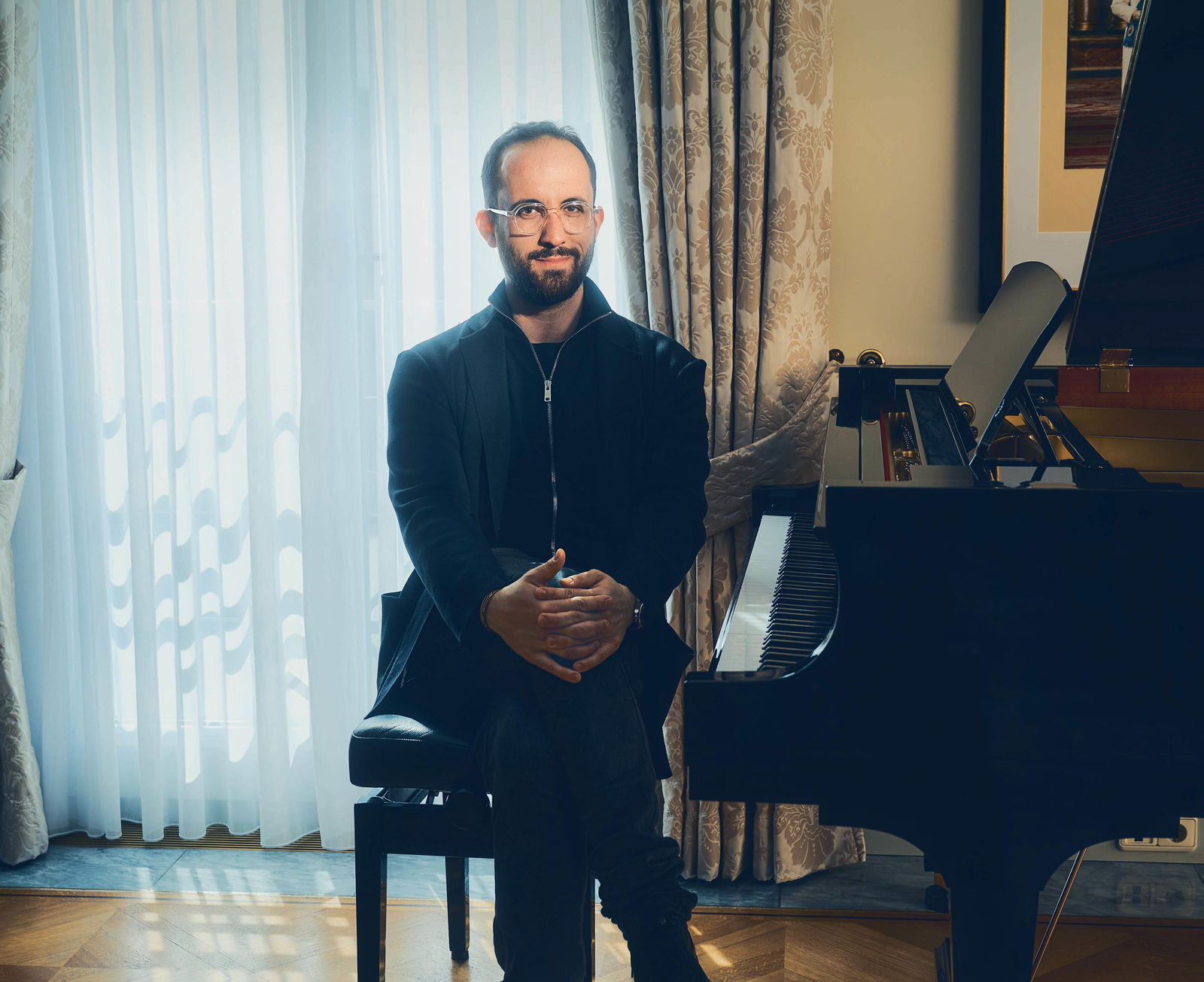
Christoph Wellendorff: Igor, you're quite mischievous, ...
Igor Levit: ... No, I'm an angel ...
Wellendorff: ... and I have the feeling that it's exactly this mischievousness that brought us together. When we met at a birthday party in Pforzheim years ago, something special happened. You took me out of my comfort zone, as you often do with those around you. You were the one who was supposed to play the piano. But then you came and persuaded me to play Beethoven in front of you and all the guests. What was going through your head when you put me on the spot like that?
Levit: Right from the very beginning, I saw and felt how much joy the thought of doing it gave you, despite the pressure and nervousness. Otherwise, I would never have forced it. And, when I see that mix of “Oh God, I'm nervous, I just want to run away and hide” and “My heart is dying to do it”, then I want to encourage it. And the result proved me right. I liked being the instigator.

Wellendorff: Well, thank you, you did well. So, not only are you a gifted pianist, but you are also a professor of piano at the University of Music, Theatre and Media in Hanover, and give lessons. What do you want to teach your students?
Levit: Each one of them can already play the piano. I try to prepare them for what it will be like when their studies and this period of luxury are over, when this protected space is gone. At some point, they go out into the world, and no one is waiting for them. So, how do you assert yourself? How do you go out there with the feeling that you have meaning in this life? So, when someone comes to me and plays me a piece, I always say to them: you can do whatever you want with this work. You can take what the composer has written and turn it upside down. You are allowed to do that; you are your own person. I want to know how you got from “I'm reading the sheet music for the first time and starting to learn it” to “I'm going to flip the sheet music and play it from left to right”? And, I need an answer that is more than “it just felt right”. If you have that kind of attitude, then your time with me is over.
Wellendorff: Over?
Levit: Yes. My question is all about knowing what the music is trying to say. Only when you understand the work can you make it your own. The vast majority of people fail here. And that's where the work begins. Basically, I encourage my students to instil as much self-confidence into themselves as possible, in a good way, by knowing as much as possible, working as much as possible, and learning as much as possible. That is only one side of the story, the artistic side, where magic and enchantment are created. I may have an incredible talent. But if I don't move you emotionally, you won't buy tickets for the concert.
Wellendorff: And the other side?
Levit: Now, this may surprise you. The gift you have been given doesn't guarantee that you will survive out there. After all, it's just as important for you to be in control of your life. In the first semester, I tell them to keep an eye on their finances, get an accountant, surround themselves with people who tell them the truth, and have friends who can keep them on the right path. If you have made food, wash your dishes straight away, and not in three days' time. Do things immediately, otherwise, you will have less and less time for what is essential to you: namely, time to grow, time to make music, and time for art. So, I talk to my students about the part of life where one plus one equals eleven, and the part where one plus one equals two.
Wellendorff: Some people say that you, alongside three or four other pianists, are one of the most gifted Beethoven performers in the world. When you played the Pathétique for us in Pforzheim, it was a magical moment for me. Mainly because I've played them a lot myself, and yet I experienced something I hadn't felt before. What is that?
Levit: You tell me.
Wellendorff: The piece started to sing. It started to develop its own melody, for me anyway. And I have the feeling that this has a lot to do with technique.

Levit: Totally. Of course, everything has a lot to do with craftsmanship. I have to be able to translate what's in my head and in my heart into my hands, into the performance. Otherwise, I'd be an amateur. But the way you felt it is part of your experience. I have to be honest, I don't remember it. That's always the case with me. When a concert takes place, it's the most important thing in the world, and then it's over.
Wellendorff: How do you know that a piece of music is ready to take to the stage?
Levit: I go on stage with the piece the moment I can play it.
Wellendorff: How long does it take before you can play it?
Levit: It depends on the piece – sometimes after a week, sometimes after three days, sometimes after three months. But I go straight on stage. I don't wait a second longer. That's why I learn. I can't just play within my own four walls, without the audience I'm doing it for. The work only flourishes when I'm on stage; that's where I feel people's reactions, that's where new interpretations emerge.
Wellendorff: You wear a Wellendorff bracelet and have experienced the flexible gold for yourself. We thought long and hard about when it would be ready, when we would be able to use the gold to create something. After 17 years, we were happy. What did you feel when you first experienced the flexible gold?
Levit: Anyone who knows me knows that what I'm about to describe to you is the best feeling I can experience. I put the bracelet on, and three hours later, I forgot I was wearing it. No longer thinking about it is the best thing for me. Things that I love very much – things that I have a relationship with – feel so familiar to me, so much so that they have become part of my world, a part of me. These are things that I no longer feel I have to put on and take off, but that are simply there.
Wellendorff: That's the biggest compliment you can pay us. So, jewellery often has two names. One that we give it and one that its wearer gives it. You named your bracelet life. Why?
Levit: When you asked me what my favourite colours were, I said black, and then also red. Then we talked about fire and ice, and I mentioned the image of melting ice, the coming together of two powerful forces: the hardest, most extreme cold and the most overwhelming heat. The ice is still hard and cold, but it is melting. It's the presence of both, and the tension between them, that defines life for me.
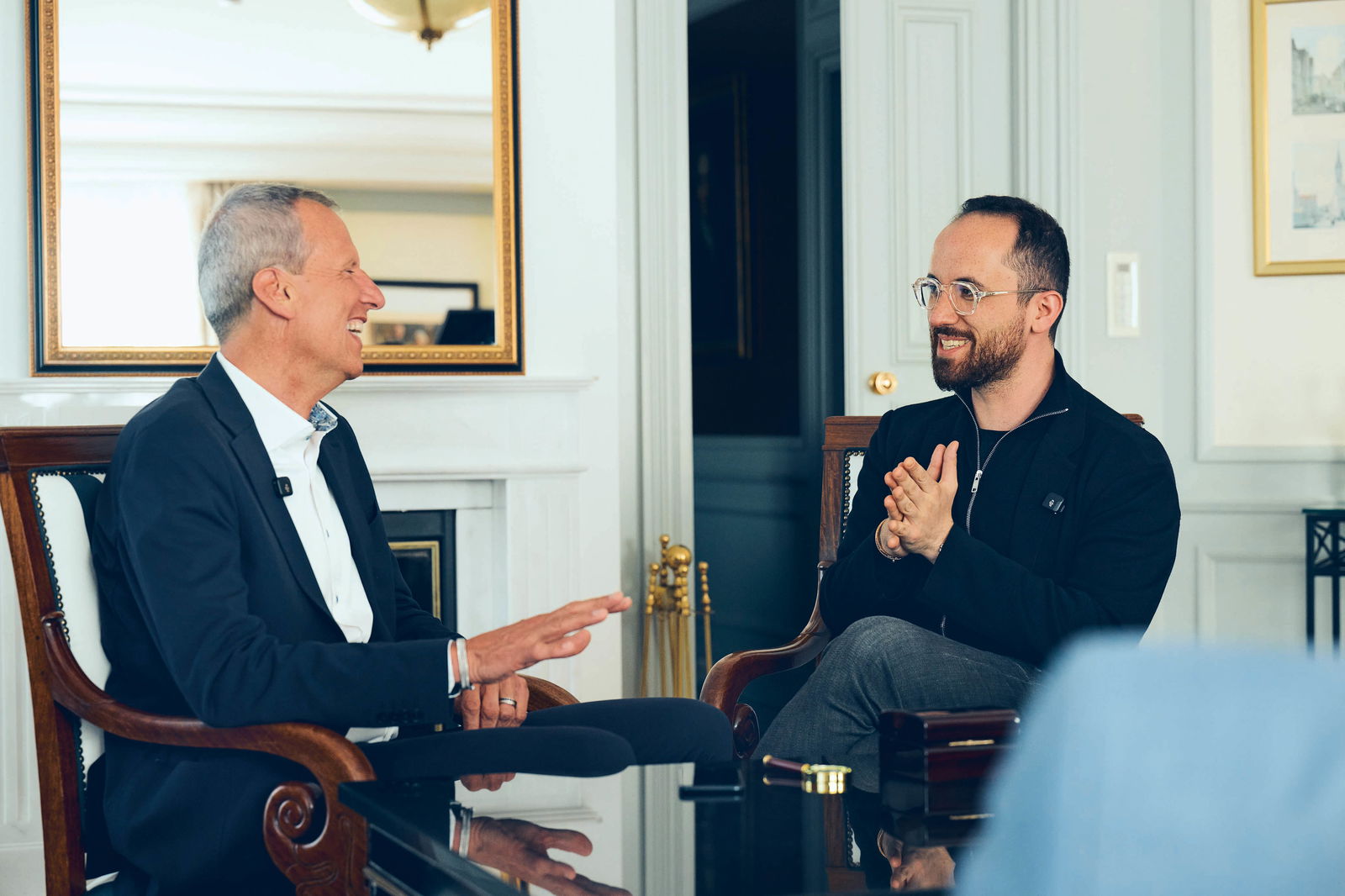
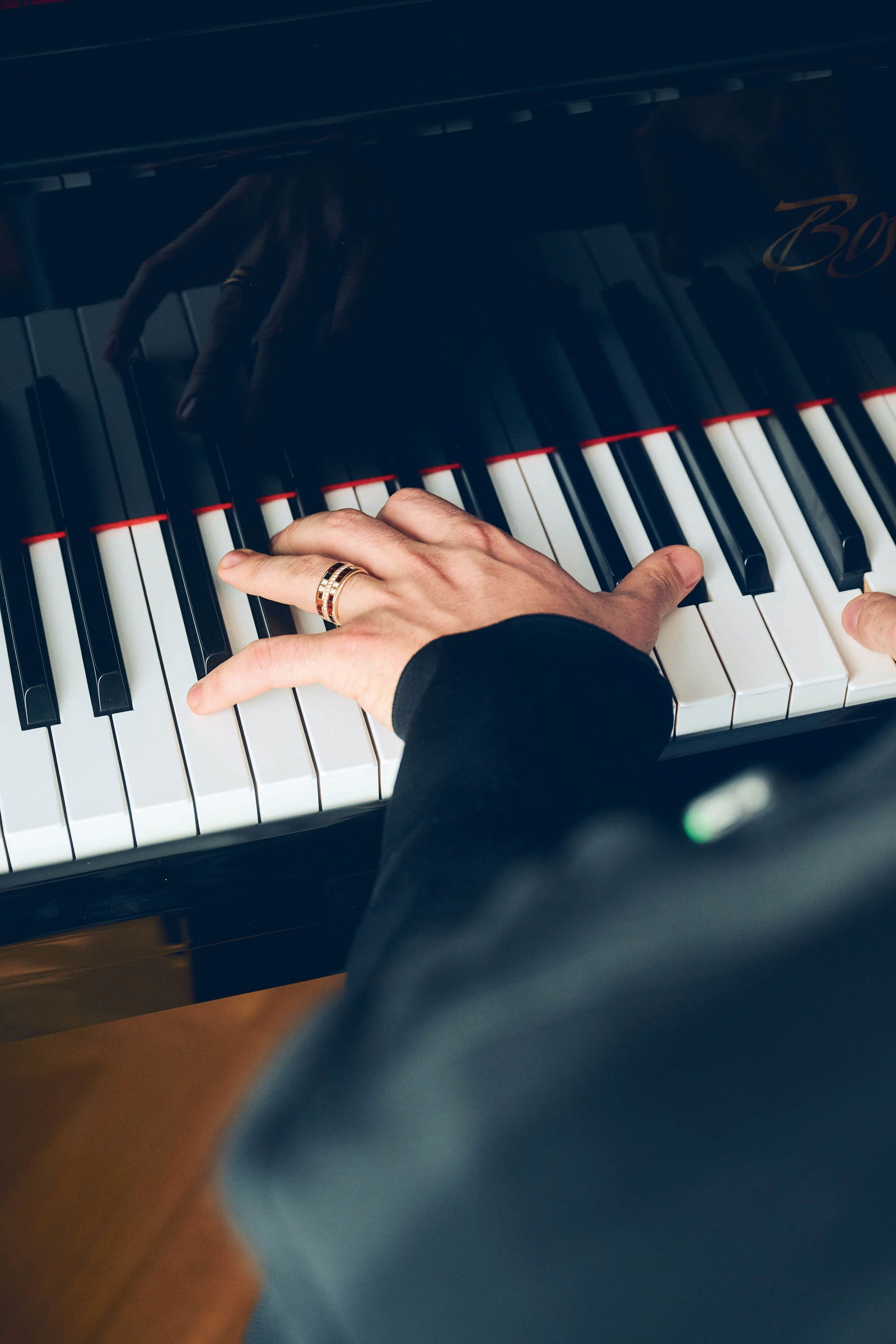
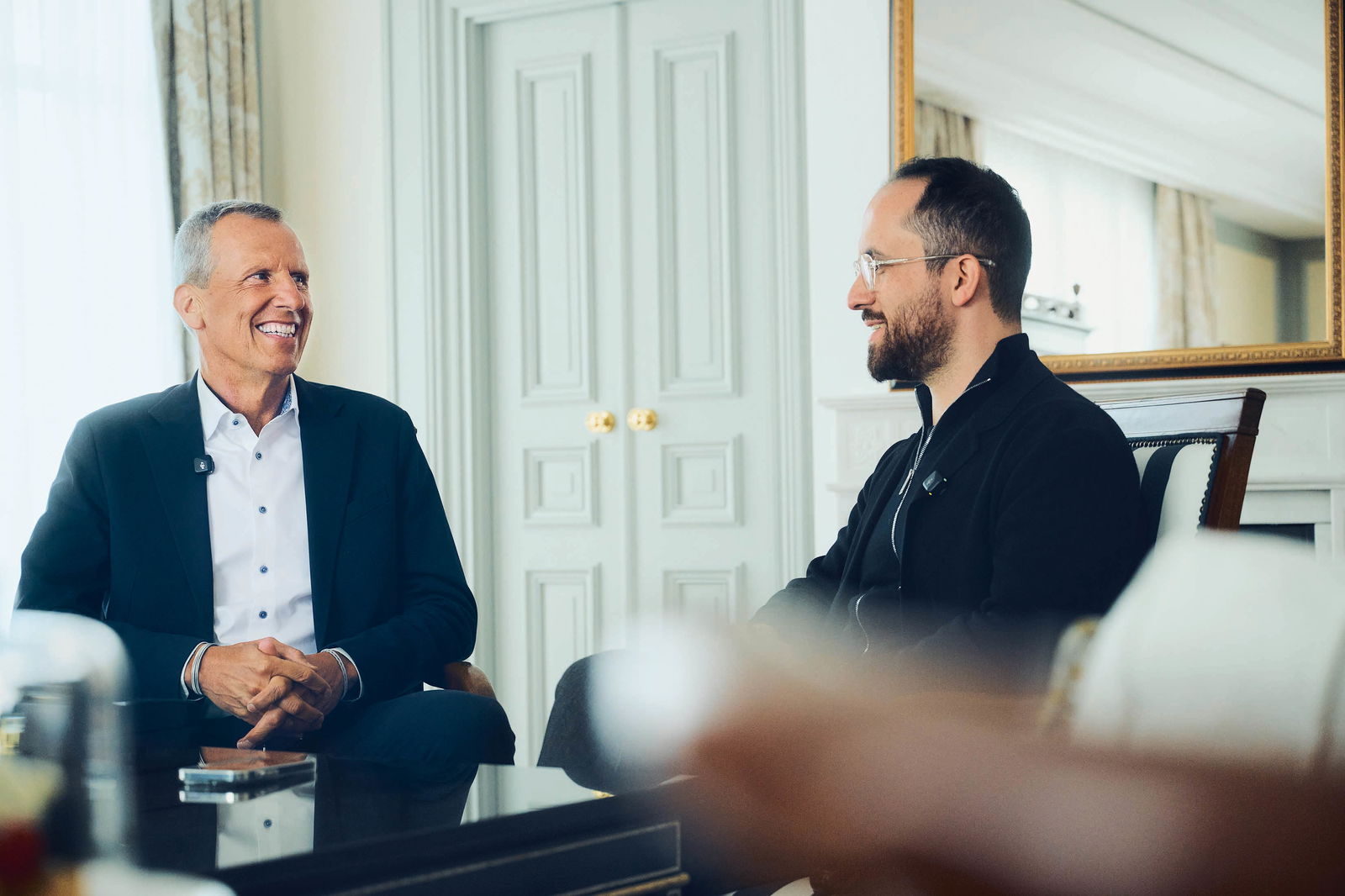
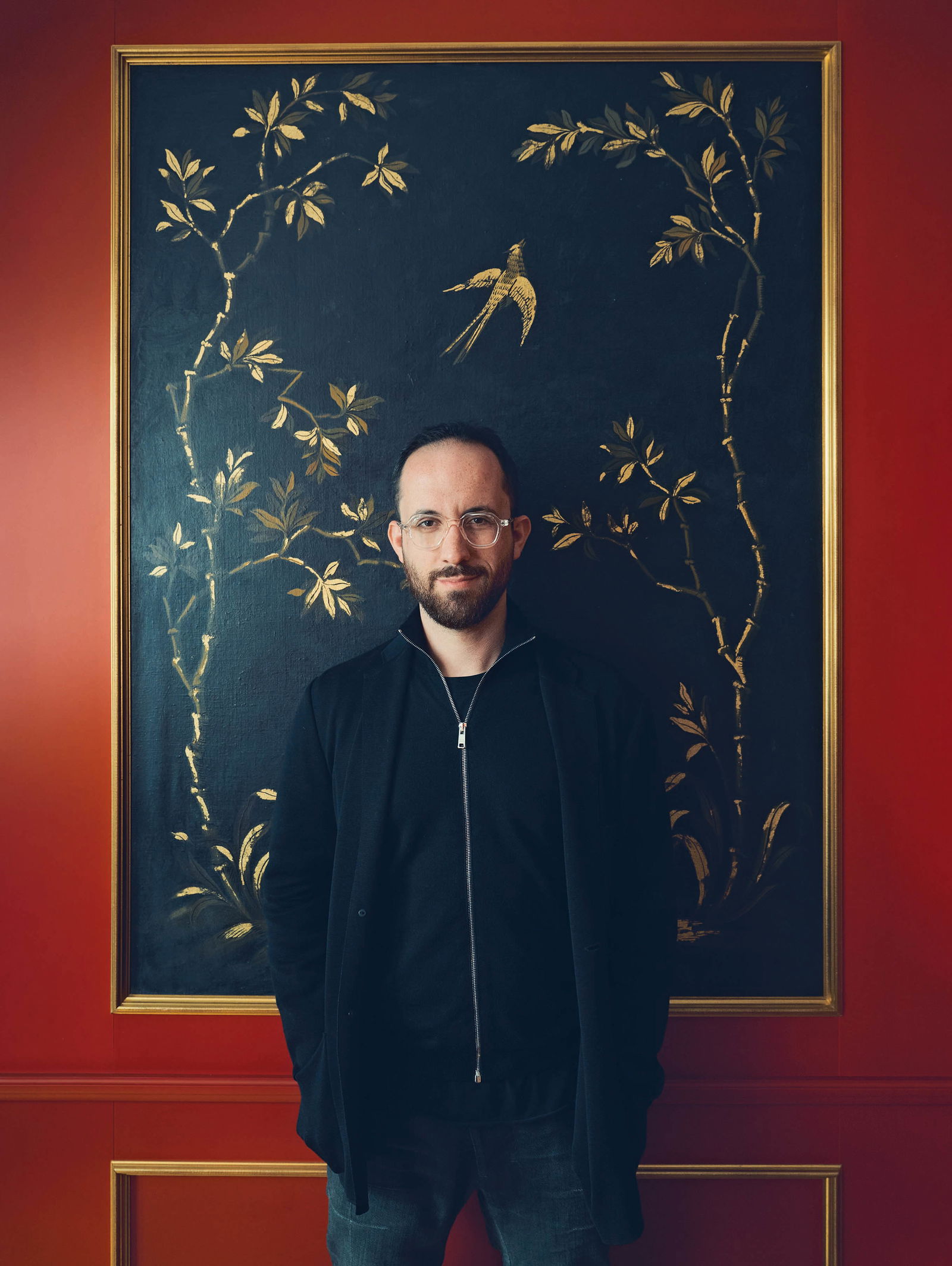
Wellendorff: You once had a little accident - with a ring and a piano ...
Levit: ... Yes, I played Beethoven's Hammerklavier Sonata while wearing a ring, and I hit the piano a bit hard and chipped off a part of the keyboard.
Wellendorff: You haven't worn a ring when playing the piano since, have you?
Levit: I wear one from time to time, a little Star of David on my little finger. Apart from that, I haven't worn one since the little accident.
Wellendorff: That's why we both thought about how cool it would be if you had a ring to go with your bracelet that you could wear when playing the piano.
Levit: Yes, that would be great.
Christoph Wellendorff reaches for the small box on the table in front of him. He asks Igor Levit to close his eyes and give him his hand. Then he slips a ring over his finger, a ring in shades of red and black, with sparkling diamonds.
Wellendorff: You can open your eyes now.
Levit: Wow, how wonderful. God, it's beautiful.
Igor Levit gets up and goes to the piano by the window. He sits down, looks at the ring and begins to play one of Mendelssohn's Songs Without Words– a touching moment indeed. After five minutes, the conversation continues.
Levit: This is the softest ring I've ever had on my finger. You really do create incredible things. Could you please explain this ring's special spinning feature?
Wellendorff: With pleasure. There are two stories about it, three actually. One story is my own. When my wife Iris became pregnant for the first time, we were delighted. At three o'clock, she rang me from the hospital to say that the baby was about to be born. I drove through the city as if in a trance. At the last junction, there is a sign for the hospital on the right and the cemetery on the left. There lies the grave of my grandfather Alexander, whom I loved very much and after whom we wanted to name our boy. This gave me the idea to create a ring for my wife that shows that every beginning already has its end, and that every end is also a new beginning. The spinning feature of the ring is said to symbolise infinity. And that was the beginning of the spinning Wellendorff ring.

Levit: And the other two stories?
Wellendorff: I often hear customers and friends say that they no longer want to wear a “static ring”. Because what characterises our lives is the dynamism, this permanent change. During the Coronavirus pandemic, you created a sense of dynamism by playing “concerts” at your home. This dynamic, this attitude to life, is what our spinning ring is all about. And the third story is your story. What connects you to the spinning feature?
Levit: I hold what you have just described very close to me. I don't think within limits. I think in processes. I don't set any goals either; I just want to do things for as long as I can. After one comes the next, then the next. So, I can really empathise with that sense of spinning. I remember the memorial service following the passing of my best friend. I remember how I tried to hold it in, not to cry, not to be weak. Then the funeral service was over, and I sat there on the grass in front of the church, crying my eyes out. At this point, my mobile phone rings and one of my closest friends tells me in an overjoyed voice that his daughter has just been born. This timing almost drove me crazy. But it was a moment of salvation.
Wellendorff: Take a closer look at the ring. It is actually made up of three rings. The question we asked ourselves was whether we should create the rings in such a way that they spin together or in such a way that each one spins independently of the others.
Levit: Why?
Wellendorff: You tell me. What do the three rings stand for in your life?
Levit: I am often asked what I am now: a pianist or a political pianist, one or the other? People keep asking these kinds of questions just to make things simple for themselves. But I am all of these things equally and at the same time. What I simply never wanted to do and probably never will do is prioritise. I do everything at the same time with the same intensity. Every part of my life needs a different type of energy. But it's only when these parts come together, my life is complete. In theory, I could have eight rings, but they would all have to spin individually. Every ring has a place. Every part of my life that interests me has a place.
Wellendorff: Igor, when we first met, we quickly agreed that jewellery and music are the perfect combination of craftsmanship and art, that passion or technique alone is not enough. Our motto at Wellendorff is From Love. The Best. If you transfer that to music ...
Levit: ... then the essential factor is that your love, in my case for playing the piano, is so great that you can't help but sit and work on it anyway. If someone tells me they want to become an artist, that's the moment I tell them not to. I am an artist, I have to be. What I do isn't a job. I need music to feed my soul. If you can't go without it, that's when you know it's real.

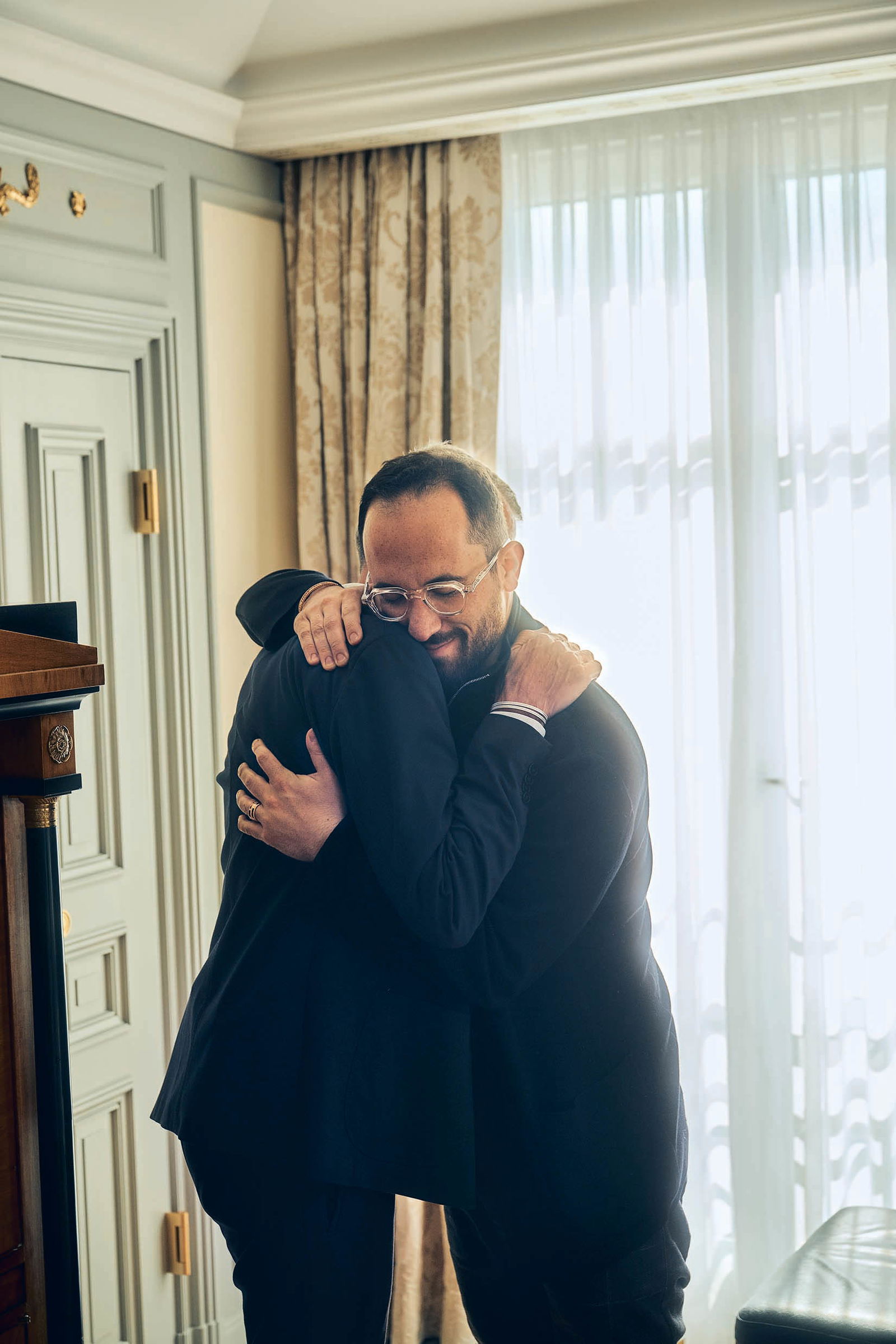

The conversation between Igor Levit and Christoph Wellendorff in the video on our website:

